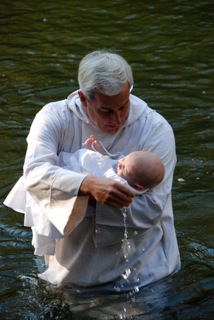Taken vs Gran Torino
A while back a dear friend and brother in Christ recommended two movies, Gran Torino and Taken. I had not heard of either but trusted my friend. So Kristen and I watched them reasonably soon thereafter on pay per view. The first is a drama and the second a drama/action film. Both were right up my alley, Cussler and Ludlum fan that I am. Immediately both movies engaged me.
Taken involved a father rescuing his daughter from mistakes of growing up too quickly born of an environment where growing up too quickly is allowed if not encouraged. The star is Liam Neeson. He is apparently a retired covert agent who “prevents” bad things from happening by eliminating bad guys before they do bad things His daughter is unsure of his former profession. She has not asked because she is not sure she wants to know. Believe me, she does by the end of the movie.
As she is kidnapped abroad, Neeson gives his daughter advice on what to shout out as she sees her sex slave trade kidnappers approach. Why? Because she is about to be “taken.” She provides her dad enough details for him to arrive less than 24 hours later and track her and the villains down, taking out every obstacle that stands in the way. And the obstacles are many.
His fear is every father’s, that evil will befall his beautiful but naïve daughter. To save her, he is willing to die. Easily understood. He is also willing to kill. Sadly, it is understood just as easily.
Gran Torino is about an aging decorated Vietnam Vet who, while increasingly alienated from his family, befriends the Asian family next door. The teenage youth of the family are under assault continually by an Asian gang that wants the teenage boy within the gang’s grip. The gang provokes by raping the teenage girl. The response of a loyal vet is predictable. Take the enemies out. Otherwise, bondage is the foreseeable future.
But the Vet, Clint Eastwood, is haunted by memories of war and growing awareness of guilt before God. Like Liam Neeson, he wants to liberate but considers how liberation might be achieved by a means other than violence, other than killing. The time is ripe. He confronts the gang members who immediately bear arms. Many neighbors look on. While truly unarmed, Eastwood reaches for his lighter as if reaching for a gun. The gang takes him out. But this time there are many witnesses to the crime, the slaying of an unarmed man. The bad guys go away. Eastwood took the hit. Others go free.
The movies capture the great chasm between our best love and God’s. They highlight the tension between who we are and who God wants us to be, the image into which we Christians are being transformed.
Our best love lays down life to save another. But our love does it with defense, even violence if necessary. His best lays down life without defense, without response, silent as a sheep before the shearer, a lamb led to slaughter.
By no means do I want to diminish the selfless love that will give up life to liberate. While some others disagree, I believe the defense of life and even freedom are cause enough for us to bear arms morally. Unlike God in Christ we cannot defeat villains without defense. That is a power reserved for God alone.
But Jesus sets a higher standard meant to be reflected in every other part of our lives. Why not instead be wronged the Apostle Paul asked. I wonder if the selflessness that leads to life would not, ultimately, if achieved in us, eliminate a need for arms. It could certainly go a long way.
Alas, it could not completely because we are not perfected in this life and regardless of our levels of sanctification, there are far more unbelievers. And for some, genocide is a totally acceptable way to accrue power.
But what if we didn’t fight back in lesser matters? How much damage is done in having to win? How much pain is caused by our need to be right, have things our way?
As the father of a beautiful adult daughter who is still naïve in many matters, I am keenly aware of my fatherly duty to disciple and communicate truth. I am also aware that insisting on winning, my wisdom being heard and acted upon, leaves me at the precipice of destroying the relationship with the person I am so anxious to save.
And here other attributes of God’s love are instructive. He is slow to anger. He is abounding in steadfast love. We grow weary. We give up when he doesn’t. We yield to our own needs, our own defense. God loves without having to win.
Let us have before us always the love that takes a hit in hopes of others being set free. It is the image of love into which we are being transformed. Perhaps if before us continually, the Holy Spirit will have an easier way of making it real in this life even as we await its fullness in the life to come.
